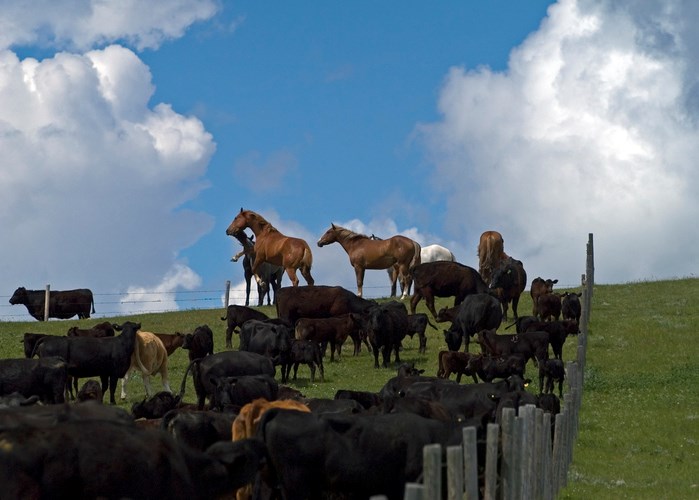The Sidoryk family has been at the forefront of holistic management in Saskatchewan and Alberta for 30 years. They've brought cattle through their fair share of drought in that time.
Along with Canadian Cattlemen editor Lisa Guenther, Sidoryk will review some of the lessons she's learned in that time during an online Livestock Day event planned by Ag in Motion for Aug. 26.
Kelly Sidoryk says planning for things to go wrong is a main component of the holistic system.
"Things have become extremely serious since Lisa and I did the videotape in July. Right now we're almost in survival mode, so it's difficult to be forward planning now," says Sidoryk.
"Grazing planning is just one piece of holistic ranching. We also deal with the water cycle a lot. That's basic. Over time, building a water cycle helps create some degree of drought resiliency. We try to increase organic matter so we have that spongy kind of soil that holds moisture."
She said the holistic system deals with landscape and livestock but also with finances and people. In stressful times like these, those two subtle factors become very important. She said farmers need to get a realistic grip on their financial situation so they know where they stand.
"You can't go out and institute holistic grazing overnight … but it can help ranchers beginning next year," she said.
"When it comes to grazing in the fall, the multi-paddock system gives your plants time to recover after grazing. More paddocks give you more flexibility. You need plant diversity. Resiliency in your plant community allows you to grow more forage, but at the end of the day, our farm needs moisture just like everyone else. Our water spots are drying up, too. We're all struggling to a varying degree."
Discussing her Aug. 26 presentation, Sidoryk is optimistic. She says one thing that can come out of the drought is a greater focus on soil health and the new opportunities in cover crops and cocktail crops that lead to a more complex and resilient plant community.
"I hope this drought can help bring people together. It seems that farming has become so divisive. Maybe this is a chance for grain farmers and cattlemen to collaborate on meeting these challenges from the drought. Grazing harvested fields, for example.
"There are so many electric fence systems now. In a short period of time, you can create grazing paddocks in a harvested grain field. Or baling the straw. It looks like straw will become a main feed source for a while."
Sidoryk and Guenther's Livestock Day topic is "Extending grazing through holistic planning."
or more information, visit






